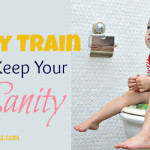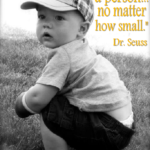
You can create confident kids. Confidence isn’t something you are born with or not. Actually, habits, behaviors, beliefs, and ideals are largely created before the age of seven. It is up to parents to use tools that will mold children into their best possible selves.
I was not a confident kid. I don’t know that I can even tell you exactly what created a perfect storm of insecurity, perfectionism, and self depreciation in me. I do know that I was already that way by the time I reached first grade. That being said, it has been very important to me to not pass those issues down to my children, and to learn tools to overcome it myself. What I share below is a compilation of tools I have found extremely useful in breaking that cycle.
Create Confident Kids Through Fisticuffs Councils
A fisticuffs council is basically a family court where kids learn how to express themselves, how to use effective communication skills, how to have empathy, and how to solve conflicts confidently on their own.
It is easy as a parent to get trapped in an annoyance cycle when kids have fights or arguments. Whether they are arguing over a toy, got hurt, or tattling it can seem like a constant battle to manage emotions and discipline.
Fisticuff councils put the responsibility of this back on the individuals involved in the conflict, and allow the parents to take a judicial and regulatory position.
Here is how fisticuff councils work: anyone can call a fisticuffs council. Once a council is called, those involved in the conflict sit down to resolve the conflict. A parent monitors the proceedings. One person is chosen to speak first and they express their feelings. Anyone else involved is required to be very strong and silent until the speaker is done and then they switch roles.
For example, one child might start by saying, “I am sad, frustrated, angry, and annoyed. I feel this way because you came into my room and destroyed my lego creation. The second child then takes their turn. They might say, “I’m sad, annoyed, and feel rejected. I feel this way because you never let me play with your toys or include me when you are making cool things with legos.”
Sometimes kids don’t need anymore help after this. They only needed to feel heard and are ready to go back to playing together. Other times, they need a little more help and the parent can now step in, validate how they each feel, and offer ideas for coming to resolution that works for both of them.
On occasion a child will call a fisticuffs council with a parent. We aren’t perfect after all. This is a great opportunity for parents to model how to do this type of conflict resolution, offer kids the power to understand they are respected as individuals, and give them the power to make change and improvement in their lives even with authority figures. This is a huge way to create confident kids!
Create Confident Kids Through Routines
Raise your hand if you frequently seek external validation, struggle with intrinsic motivation, or are a people pleaser?
We want to set up consistent routines that show kids and ourselves how to avoid these character pitfalls. One way I do this in my family is by asking a few questions everyday. We do this at dinner time or bedtime. My husband and I try to include everyone in listening to each others answers for the day.
Here are the questions I use:
- What was your favorite part?
- What is something that was difficult or hard for you today?
- What is your goal for tomorrow?
- How did your goal for today go?
- What is something you are proud of today?
I chose these questions for specific reasons. Favorite part and hardest part allow kids to share their day. It helps me to know more about them, what excites them, what discourages them, and if they are having problems in their lives that I need to help them with.
I chose goal oriented questions because this teaches children to set and achieve goals. It shows them that their family is supportive of what is important to them. Also, since long term goals are a difficult and abstract idea to kids it teaches them to be goal oriented on an achievable level. I am also able to help them set their goals and give them small pushes to accomplish big things.
Asking, “What are you proud of” might be the most important question on the list. Asking this question teaches kids to acknowledge the good things they do for themselves. I can tell them all day that they are awesome and doing great things but this does not really build confidence. When they tell me what they have done that they think is awesome they say for themselves what is worth recognizing. Self acknowledgment helps them to know that they don’t need to seek praise from others to be an amazing and complete human being.
You may find that other types of routines are also helpful. If a child’s world is more predictable, then they have more ability to learn and grow in confidence and emotional intelligence without fear and setbacks.
Create Confident Kids Through Boundaries
In my house certain things have to be completed before certain activities or rewards are allowed. Everyday bedrooms need to be cleaned, chores need to be done, and school work needs to be completed. These things happen before friends, tech, or family outings. There are also often time restrictions on meeting these expectations.
This month we paid for a family pass to the community pool. The kids know that it opens at 4 on weekdays. If their work is done by four they get to go. If it isn’t they get to stay home while those that got their work get to go. Know one has had to stay home. Additionally, this type of boundary makes it so I don’t have to nag, or remind them to get their responsibilities taken care of.
Another boundary that has proved paramount at my house is putting limitations on the amount of possessions kids are allowed to have. If you want more on this, see how I set boundaries around cleaning. If it is too difficult for them to clean up their bedrooms by themselves then they have two options: put some of their possessions in quarantine for later rotations, or get rid of them. It isn’t fair to a small child for me to expect them to clean up a mess that would take me hours in order for them to earn rewards and it isn’t fair to me to have to help them. This solves both of those problems.
You may find that your family needs different types of boundaries than what I have shared. I highly recommend the book Boundaries if you are struggling to understand or implement them in your life.
Create Confident Kids Through Discipline
Children identify with the world in very black and white terms. If a parent says they will play a game when they get home and then something comes up and they can’t. The child believes that they have been lied too.
So, when a parent looks angry, is angry, or corrects children in anyway that could be interpreted as the child being bad. That is exactly whet they will internalize. Young children often do aggravating things with good intentions, or aggravating things to test boundaries as they try to interpret the world. Children are not bad, but are often misguided in their ideas.
For example, your toddler learns how to write their name. They then go around the house writing their name on everything; walls, furniture, etc… You could use this as an opportunity to praise what they learned, building confidence, and then redirect and teach them what to write on and ways to showcase their achievement. This is also an opportunity to teach them how to respect other people’s possessions and how to clean up the mess they made. It doesn’t have to be a punishment to be a huge learning opportunity. Alternatively, this could be a lost opportunity where you show frustration, punish them, and don’t create a better connection between you. This will also impact their future confidence levels.
Obviously, this takes self discipline as a parent. We will talk more about that next.
Create Confident Kids Through Adult Emotional Regulation
Parents who are unpredictable, and lack emotional regulation create environments where kids are in constant fight, flight, or freeze mode. If a child knows that you will be consistently calm when they make a mistake this helps them learn faster and gain confidence in their environment.
This can be a tough thing to do as an adult. There is a relatively high chance that you grew up in an environment where you were spanked, yelled at, or had to deal with the temper of one or both parents. In turn, this means that upon instinct in tough situations you will default into using the same techniques your parents did. Quite frankly, you don’t know how to do better.
It takes discipline to change the patter and learn how to use new tools. Your emotions are your responsibility. You get to chose how you react. The trick is in practicing changing your reactions. If you are struggling use the following as a personal motto:
Power belongs to the person who can maintain emotional control.
Parents with good emotional regulation create confident kids because the child learns faster in a calm environment, they can rely on their parents, and they learn that they have the power to control their reaction to their own emotions by example.
Create Confident Kids Through Ownership
Ownership is living by the concept that you are responsible for your situation. This is applied in two ways to create confident kids.
First, parents need to take ownership for everything that is happening in their lives. House is dirty? It’s the parents fault. Kids are disrespectful? Parents fault. Kids are disobedient? Parents fault. This can be an overwhelming pill to swallow. It is, however, the fastest way to overcome obstacles in the home and out of it.
By taking ownership as an adult, it teaches children through modeling that no one else is responsible for creating or destroying their life. Phrases like “You made me mad!” are not acceptable for children or adults. Another example of modeling ownership would be to share with your children something that is bothering you, like being overwhelmed with the dishes. Then you tell them what you are going to do to change the situation. This could be setting up a better routine for yourself, setting boundaries around cleaning up the messes everyone makes in the kitchen, or cleaning out extra kitchen gadgets and supplies so there is less to clean up.
The second part is to expect children to take ownership of their lives. They made a mess? They need to clean it up before they do anything else. They are bored? They can ask for ideas on what they could do but ultimately they need to figure out what to do with their time. They fought with a sibling? They need to take the steps to resolve the conflict, understand they played a role in creating the conflict, and make retribution if needed.
As they get older this means allowing them to fail in bigger ways. They neglected to study for a test? They fail. They didn’t set an alarm for school. They end up late. They didn’t check their work schedule to know when to show up for work? They get fired. Not constantly bailing them out helps them switch from relying on you to take ownership and responsibility to a position where they take ownership and responsibility and ultimately gain confidence in their own abilities to overcome, achieve, and control the outcomes in their lives. .







